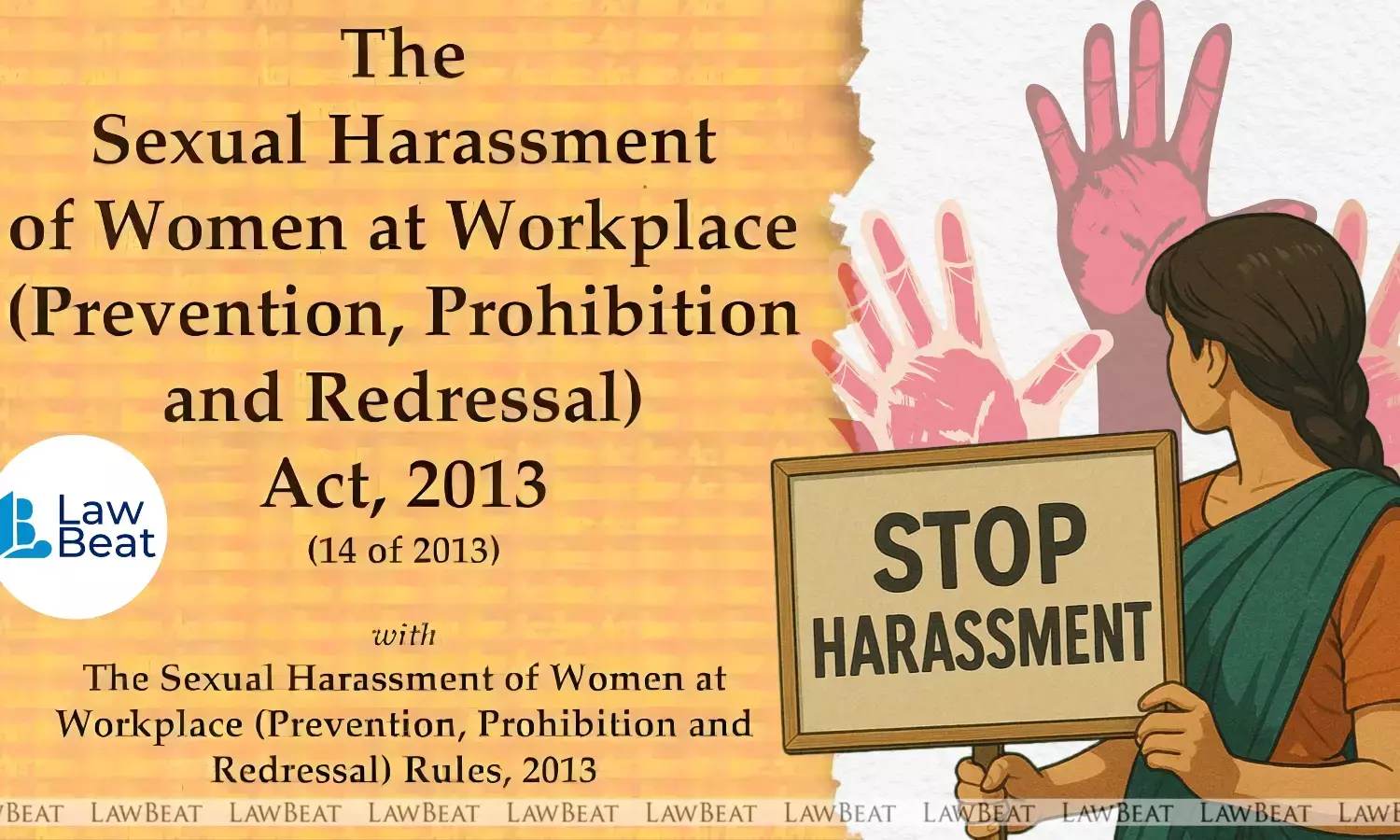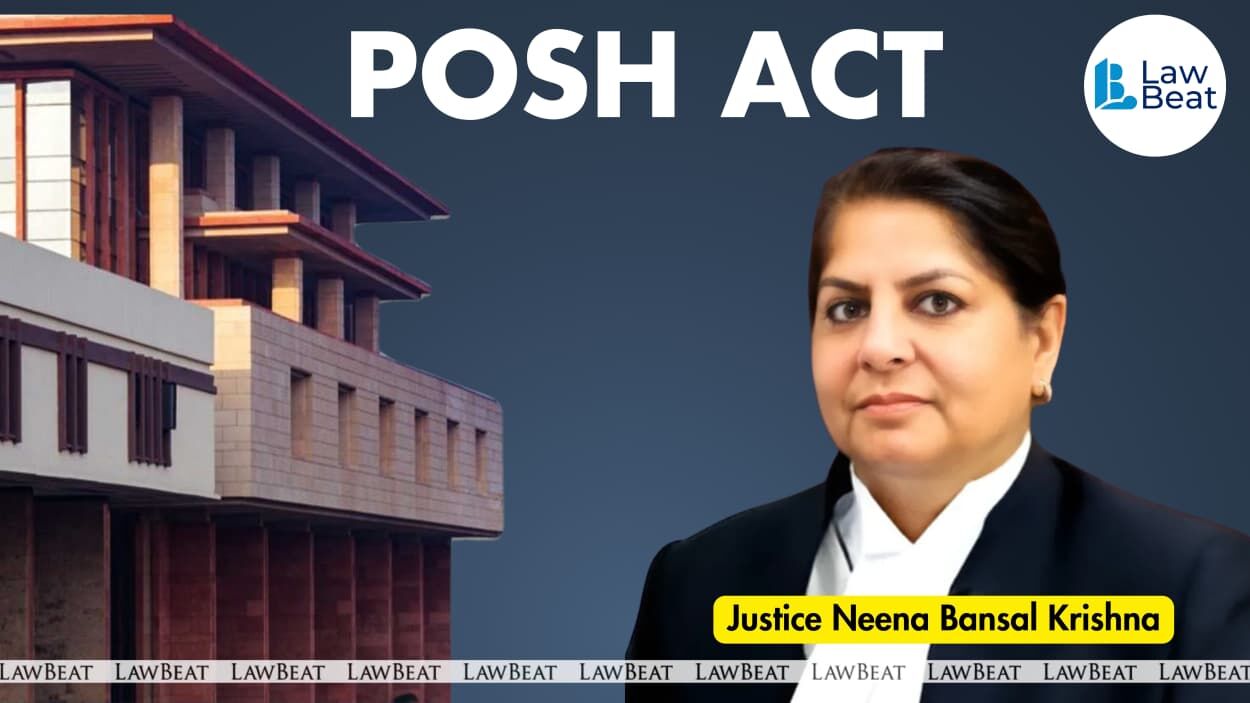Exoneration by POSH IC inquiry does not justify discharge in FIR: Delhi High Court

Delhi High Court holds that exoneration by an Internal Complaints Committee in a POSH case cannot be the sole basis for discharge from criminal proceedings under IPC.
Sexual Harassment of Women at Workplace (Prevention, Prohibition and Redressal) Act, 2013 does not entitle an accused to discharge in criminal proceedings under the Indian Penal Code.
Justice Neena Bansal Krishna, in an order dated August 28, 2025, dismissed a petition filed by Asif Hamid Khan, former Additional Resident Commissioner of the Jammu and Kashmir Government, who sought to quash his trial on the basis of a favourable Internal Complaints Committee (ICC) report and two closure reports filed by the Delhi Police.
The Court, in its 22-page order, remarked on the continuing challenges faced by women in workplaces despite existing laws. Justice Krishna observed: “This case is a reflection of society, where despite stringent legislation and repeated lamentation about gender neutrality and equality to provide a safe work environment, unfortunately the psychology and mindset of the men in workplaces, where sexual harassment continues to haunt women, especially when it involves ‘Power Dynamics’, has remained unchanged.”
The complaint was made a Kashmir Administrative Service officer posted as Manager at the J&K Guest House in New Delhi, who accused Khan of sexually harassing her. Her complaint under the POSH Act was referred to the ICC of the Department of Hospitality and Protocol, which in February 2015 concluded that the allegations were not proved. The ICC stated that apart from her allegations, there was no corroborative evidence and other witnesses did not support her version. On this basis, Khan was exonerated in departmental proceedings.
Separately, lodged a police complaint in January 2015, leading to the registration of an FIR under Sections 354A, 506 and 509 IPC. The police filed a closure report in 2016, citing lack of supporting material, and a supplementary closure report in 2017 after reinvestigation, again concluding that corroboration was absent.
On a protest petition filed by the complainant, the Chief Metropolitan Magistrate in August 2017 rejected the closure reports. The Magistrate held that ICC proceedings could not be equated with a criminal trial and that there was sufficient prima facie material to summon Khan under Sections 354A and 509 IPC. The Sessions Court later upheld this order in September 2018.
Before the High Court, Khan argued that exoneration in the ICC process and two police closure reports meant there was no justification for summoning him to trial. His counsel contended that the summoning orders failed to appreciate that the complaint was motivated.
The High Court rejected these arguments. Justice Krishna explained that departmental proceedings and criminal trials function in “separate spheres,” with different purposes and standards of proof. She said, “Exoneration in the departmental enquiry cannot be the sole basis for discharging him in the present FIR. Criminal and disciplinary proceedings operate in separate spheres. The standard of proof required is distinct and the Magistrate is not bound by a police closure report if prima facie material exists.”
The Court emphasised that the testimony of a complainant has evidentiary value and can sustain a prosecution if credible. Here, she had made detailed allegations, and some colleagues corroborated her complaints. The Court stressed that higher courts have repeatedly held that the sole testimony of a prosecutrix of “sterling quality” can be sufficient to bring home a conviction.
The Court added, “To say that the statement of the complainant is not corroborated by independent witnesses would not be correct. Many may have chosen not to depose against the petitioner, but the statement of the complainant and the witnesses who did corroborate her cannot be disregarded. They are sufficient for summoning of the petitioner.”
Noting that the woman complainant had shown determination in pursuing her case despite setbacks in the departmental and police enquiries, the Court held that her allegations deserved to be tested in trial rather than dismissed prematurely. It reiterated that while the ICC process exonerated Khan for lack of corroboration, this could not prevent criminal proceedings from continuing.
Accordingly, the petition was dismissed.
Case Title: Asif Hamid Khan v State
Order Date: August 28, 2025
Bench: Justice Neena Bansal Krishna

